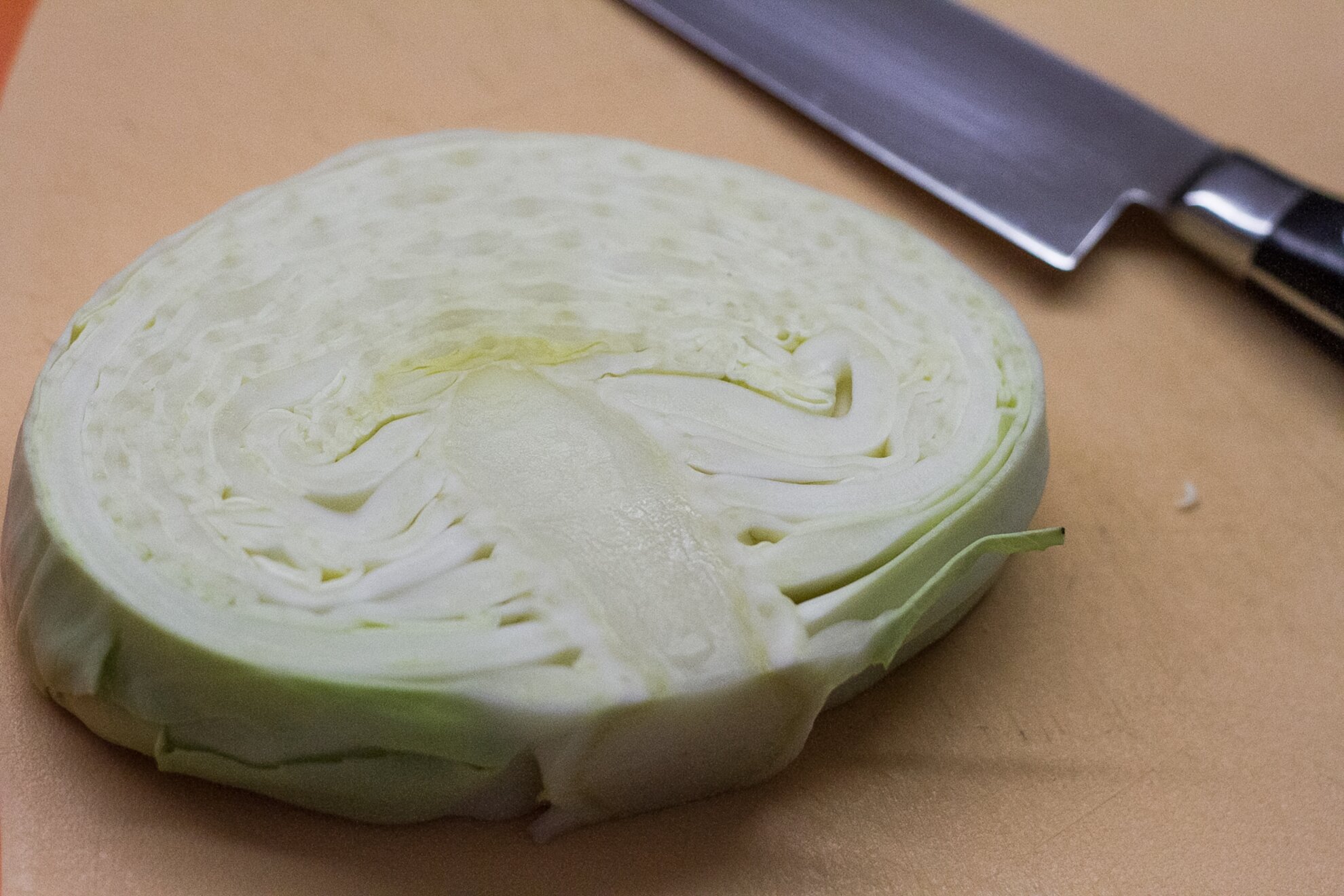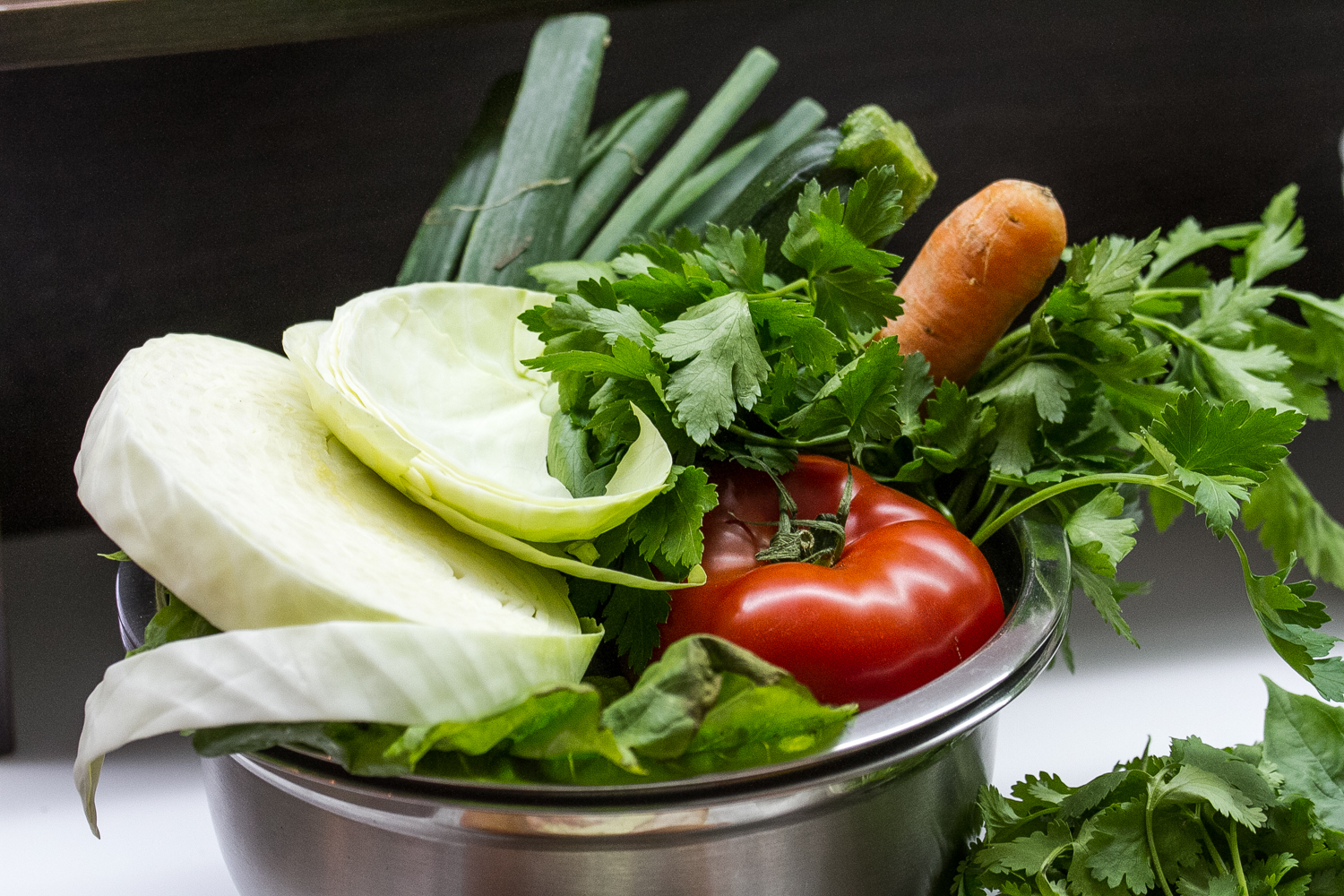Well, if you have a free morning, you should definitely consider calling the nice people of Chef Parade and see if they can arrange one of their “Typical Hungarian Menu” cooking lessons. I’ve just got home from such a lesson myself, and I would warmly recommend the experience to anyone wanting to do something funny and instructive. The lesson started as scheduled at 9am, in front of the Grand Market in Fővám tér. Bernadett, our guide/ teacher, greeted the small group (4 people) with an enthusiastic smile: it made me forget my sleepiness and the frankly horrible rainy weather!

I had already seen the Grand Market with my girlfriend, but the 50-minute tour that Bernadett gave us was still worth its while. Here she was explaining us the history of the market, its structure, the difference between various typical artifacts that can be bought on the first floor (how can you tell that an embroided table cloth is from Transilvania, for example? Simple: its colour is beige or “dirty white”!), introducing us to some of the typical Hungarian food people come to buy: lard, salami, smoked ham, various dairy products, mushrooms, honey, and, of course, more types of paprika that you thought possible. The time at our disposal went by very quickly but without any of us felt rushed: in fact, there was even a chance to do a little bit of shopping in the local farmer section of the market, in the end.We then moved to one of the three Chef Parade locations. The place, on the Buda side of town, was located in a courtyard facing an unassuming street. The whole structure seemed understated but extremely efficient and cozy (in the best sense of the term). After a little break to have a cup of coffee or some mulled wine, Bernadett introduced us to the menu we would have prepared:
- Jókai bableves (bean soup a la Jokai)
- Paprikáscsirke nokedlivel (chicken paprika with dumplings)
- Gerbeaud cake

The meat of the morning (pun wanted) was the cooking itself. This was the real thing: hands on experience with us four uneducated foreigners following the process that Bernadett explained patiently and calmly more than once (yes, I managed to do my share of disasters even with a teacher close at hand!). The pace of the teaching was good, Bernadett was clear and exhaustive, replying to several questions about the various stages of preparation. Even if the cooking was made in couple, she made a point to be sure that both people in the “team” has a clear idea of what was to be done, and what the final result of each stage should have looked like. The idea that, after the lesson, we were going to try what we learnt at home was given for granted, and this helped us focus on the learning aspect of the experience.Finally, after running up and down our cooking posts, the meal was ready. It was amiable to eat the result of our effort chatting amiably, as if we had known each other for some time: cooking must help bonding. Even better was the chance of trying each other’s dish, to discover subtle variations: for some reason, our bean soup tasted more of sour cream, whereas the other team’s paprikáscsirke looked darker despite tasting exactly the same as ours.

All and all, it was a very enjoyable morning under many respects. I learnt how to cook a traditional Hungarian three course meal; I know more about Hungarian history and culture; I’ve met other interesting people; I’ve had said three course meal myself, with the chance of bringing home the extra food. This course would be ideal if made with your significant other, but completing all the process is a lot of fun even when you do it with a complete stranger. The only thing I would change would be adding a little lesson at the market on how to choose the best paprika, but this is admittedly nitpicking.
If you can’t make mornings, Chef Parade offers all kinds of culinary courses in the afternoon: from Chinese to Italian cooking, from Spanish to Thai… and of course Hungarian! I cannot talk about the courses themselves, but if today’s lesson is any indication, the price tag is well worth the experience.
- Note: Chef Parade can arrange one-on-one lessons in the afternoons, too. In addition, the menu can be decided by the participants, so you can repeat the experience when you want and still get something new out of it.




